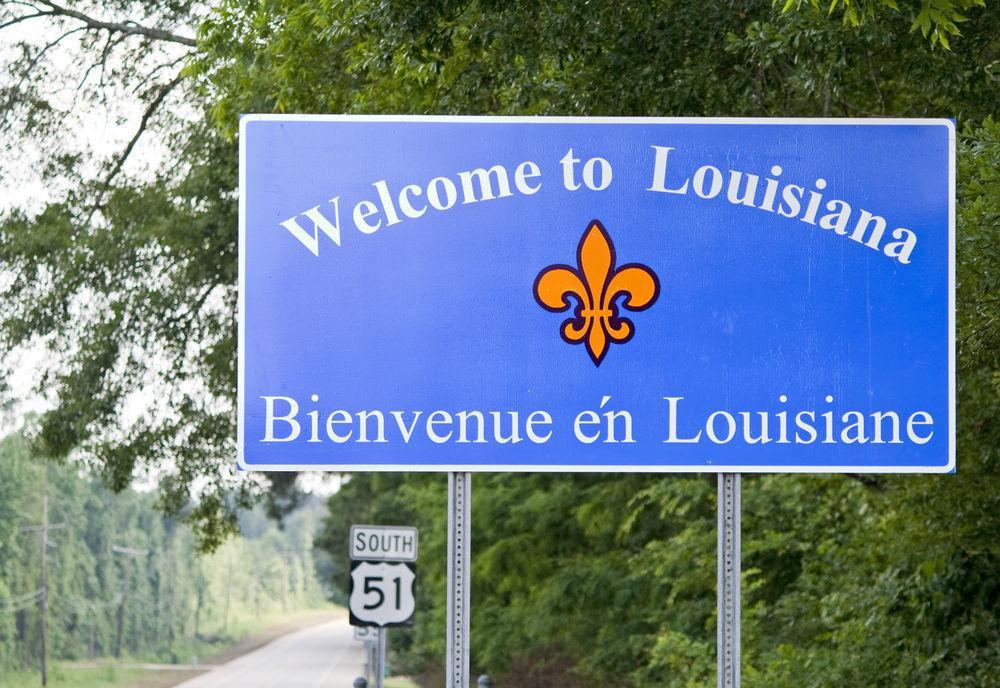If you’re unemployed and having a hard time finding work in Louisiana, it’s possible that the problem isn’t you. According to a recent study, the state has one of the worst job environments in the U.S.
The report “2018’s Best & Worst States for Jobs” by financial analysis firm WalletHub places Louisiana far down the list of states, in 47th place. Only Kentucky, Mississippi and West Virginia fared worse in the study, and neighboring Texas did much better, finishing 10th overall.
WalletHub compiled two main criteria and 29 sub-criteria to come up with a final ranking. In the category of “job market rank,” Louisiana was 47th, right in line with its overall rank. But it did fare somewhat better in “economic environment” with a 32nd place finish.
Daniel Erspamer, CEO of the nonprofit Pelican Institute for Public Policy, said the report’s conclusions were not surprising.
“Seeing Louisiana at the bottom of another list has become almost cliché,” he said. “We’ve become sadly used to analysts showing in numbers what people across Louisiana feel every day: our economy is stagnant at best, jobs are hard to come by, and working families are struggling to make ends meet.”
Jill Gonzalez, an analyst for WalletHub, agreed that the results paint a picture of a state where it can be difficult to find work and where the jobs one finds aren’t of the highest quality. But it’s not entirely gloom and doom, she said.
“There are positives worth considering,” Gonzalez said. “Louisiana has the second highest share of engaged workers, and the state does offer the earned income tax credit.”
The engaged workers measure was part of the job market category, and was based on a study from Gallup.
“This metric is based on Gallup’s ‘State of the American Workplace’ report,” the WalletHub study notes. “Gallup defines engaged employees as those who are involved in, enthusiastic about and committed to their work and workplace.”
Another bright spot for the state was in monthly average starting salary, where Louisiana was 15th highest at $2,716 per month.
When it came to negative metrics, however, there was a lot to be concerned about in the state’s rankings. Among the bottom 5 finishes for Louisiana were:
- 47th in “job opportunities,” which correlates job openings to the unemployment rate
- 47th in “job satisfaction”
- 48th in “4+ star job opportunities,” meaning number of jobs available at companies rated four stars or better on Glassdoor.com
- 48th in “share of workers living under poverty line”
- 46th in “average length of work week”
- 48th in “working moms & dads” rankings, based on two prior WalletHub reports.
Other bottom 10 results included employment growth, employment outlook and employee benefits.
“All of this data just begs the question: will the same old status quo really turn things around?” Erspamer said. “The clear answer seems to be: no. To bring jobs and opportunity back to Louisiana requires fundamental change to our state’s policies.”
WalletHub consulted several experts in job-related fields to speak about the results. Feruzan Irani Williams, a professor at Texas Tech University, touched on a topic that has been much-discussed in recent weeks and months in Louisiana, the importance of higher education to a state’s economic health.
“Cutting investments in education (at all levels, K-12, college/university, technical), although saving money in the short-run, will lead to skill deficiencies in the long-run,” Williams said. “This, in turn, will hasten the movement of jobs, either to other countries that have the relevant skills or to automation. This then will further lead to a decline, not only in new job creation, but also in existing job levels. I believe that this (cutting back on educational investment) is the single greatest threat to jobs in the U.S.”
Louisiana had faced possible cutbacks to its higher education funding and popular TOPS scholarship programs due to an expected revenue shortfall in its next budget, but after lawmakers reached a compromise this month in a third special session that to retain 45 percent of an expiring 1 percent of sales tax, the Legislature was able to fully fund those priorities.
Louisiana has the highest average combined local and state sales tax in the country.
Another area that had faced cuts before the budget deal was reached was the state’s public-private hospital partnerships, including the medical schools. According to Williams, health care is expected to be one of the top growth areas for jobs in coming years.
“Medicine, especially the jobs that require direct patient interaction and care, such as nurses, physician assistants, physical therapists, etc., [will grow],” she said. “As our life expectancy grows, so will our need for medical intervention and help in day-to-day functioning.”
Steve Werner, a professor at the University of Houston, said that keeping tax burdens reasonable was another key to fostering economic health and job creation.
“Local policy makers can attract business by having lower tax rates and lower compliance costs than other municipalities,” he said. “Of course, good infrastructure, labor availability, and other location advantages also help.”





